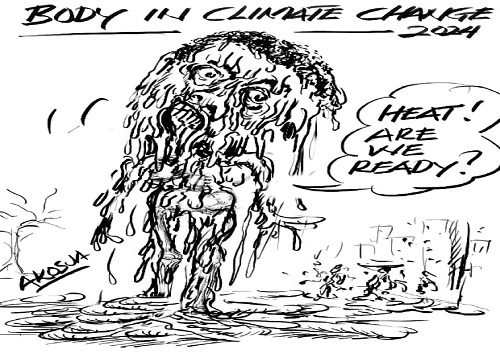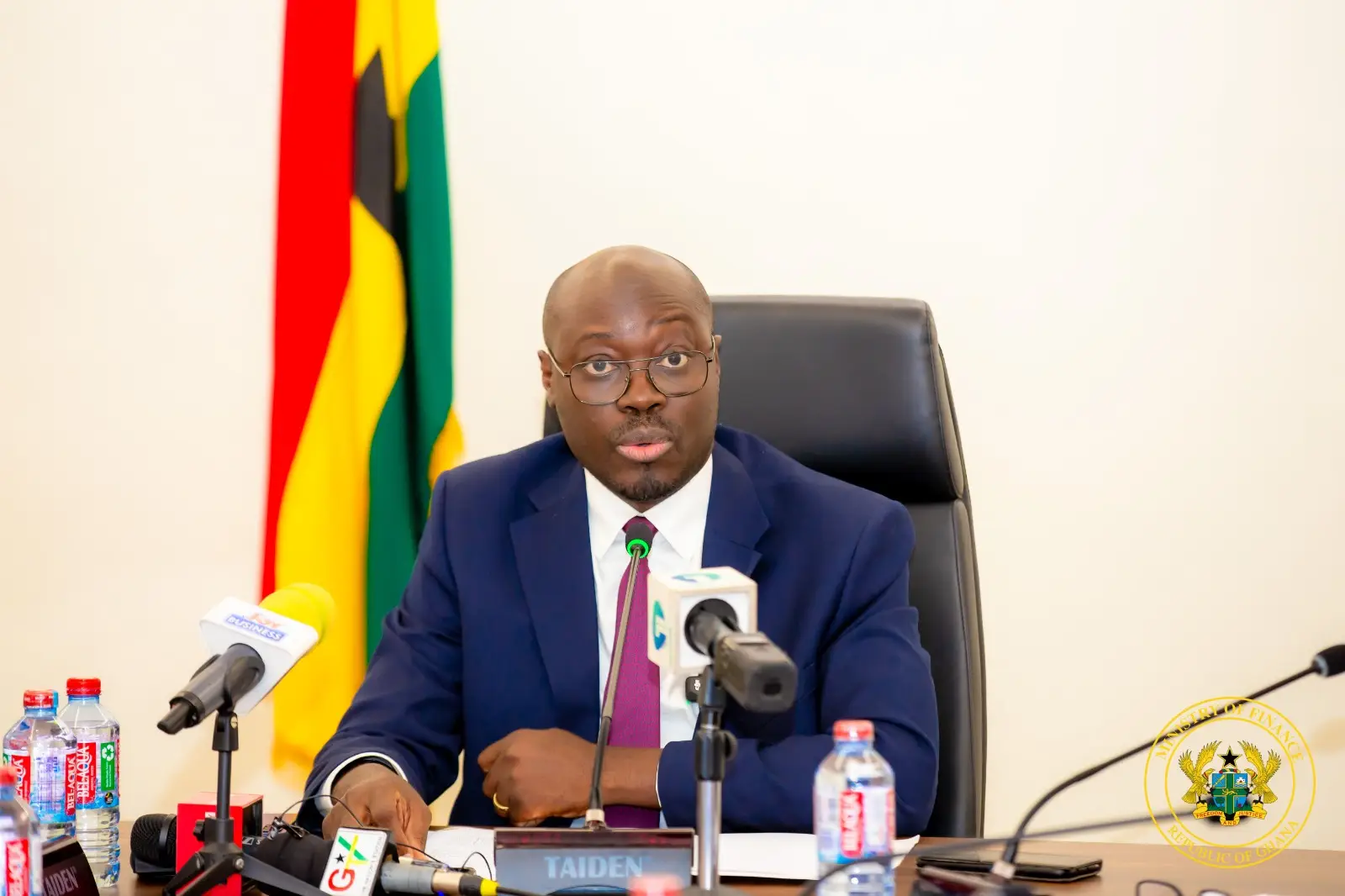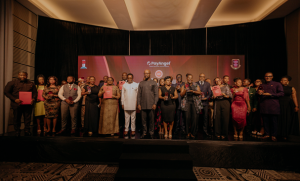
By Surv. Prof. Forster Sarpong
On Monday, July 7, 2025, the Tema Oil Refinery (TOR) opened its technical chambers to the National Premix Fuel Committee, offering what many have long demanded as in clarity.
In a country where over 200 coastal communities rely on fishing for livelihood, the public’s growing concern over the quality and availability of premix fuel was more than a technical issue; it was a crisis of trust and survival.
TOR’s detailed clarification that premix fuel is a precision-engineered blend of gasoline and condensate, not a generic product, marks a significant turning point in national dialogue and economic intervention.
This clarification doesn’t just demystify fuel, it reignites a critical conversation around productivity, equity, and growth. It has implications not just for fisherfolk and fishmongers, but also for the leadership at TOR, Ghana’s Reset Agenda, the Ministry of Fisheries and Aquaculture Development (MoFAD), household food security, and even macroeconomic stability.
TOR’s Strategic Reset: Rebuilding Trust and Operational Credibility
For the Tema Oil Refinery, this disclosure is more than a technical explanation, it is a reputational reboot. TOR, once the pride of Ghana’s downstream petroleum sector, has seen years of operational challenges, management turnover, and public skepticism. By offering transparency on the premix process, TOR positions itself as a technically sound and responsive national asset under new leadership.
Under the stewardship of Managing Director Kwame Owusu-Amankwah, TOR’s technical team now boasts a rejuvenated vision aligned with Ghana’s energy security agenda. The detailed premix composition engineered to optimise marine engine efficiency is a symbol of this renewed professionalism.
Furthermore, by standardising premix blending ratios, TOR reduces the risk of adulterated fuel entering the market problem that has cost the industry millions in engine damage and fuel wastage.
Revitalising Fishing Communities: A Boost for Productivity and Confidence
Premix fuel is the lifeblood of Ghana’s marine artisanal fishing sector. It powers over 12,000 registered canoes, employing an estimated 2.7 million Ghanaians either directly or indirectly in fishing and fish processing.
For years, irregular supply, inconsistent quality, and alleged diversion of subsidised premix have haunted fishermen from Elmina to Keta, Ada to Axim. TOR’s clarification assures these communities that efforts are underway to restore technical integrity and logistical efficiency in fuel distribution. This is particularly crucial as fishers prepare for the August 2025 lifting of the annual closed season, when demand for fuel and trust will peak.
Fishmongers too stand to gain. Stable and high-quality fuel supply translates into predictable fish landings, allowing for improved planning, pricing, and storage. This stability ripples through the value chain from sea to market stall.
. Advancing Ghana’s Reset Agenda: Local Inputs, Local Impact
At the core of President John Mahama’s 2025 Reset Agenda is the commitment to import substitution, local value addition, and sectoral revitalisation. TOR’s clarity and recommitment to domestic fuel production aligns perfectly with this vision.
The Reset Agenda has prioritised three sectors: agriculture, energy, and manufacturing. By reinforcing TOR’s role in supporting fisheries, a bridge between agriculture and trade, the government reinforces Ghana’s self-reliance aspirations. This also frees the country from over-reliance on foreign refined products, saving foreign exchange and reducing import bills.
According to the Ministry of Finance’s Q1 2025 report, Ghana’s fish import bill stood at $254 million in 2024, with 60% of local fish demand still met through imports. Efficient premix fuel delivery is a vital cog in reversing this dependency.
Strengthening MoFAD’s Policy Execution and Oversight
For the Ministry of Fisheries and Aquaculture Development (MoFAD), TOR’s move is a policy win. MoFAD has long struggled with monitoring fuel distribution, battling corruption, diversion, and local political interference. With TOR’s technical blueprint now public, MoFAD has a reference point for accountability, enabling it to partner more effectively with the National Premix Fuel Secretariat and local Premix Committees.
The new framework also supports MoFAD’s efforts to digitise premix tracking, using barcodes and digital distribution records, a system currently being piloted in 15 districts across the Central and Volta Regions.
Protecting Households and Fish Consumers
Ghanaian households consume an average of 26 kg of fish per person annually, according to the 2024 Fisheries Sector Performance Report. Fish is not just a staple; it is the largest source of animal protein for most families. When fuel inconsistencies disrupt fishing, the impact is immediate skyrocketing fish prices, compromised food security, and dietary deficits.
By ensuring fuel consistency, TOR plays a direct role in keeping fish affordable and available, particularly for urban poor and coastal dwellers. Fish traders, cold store operators, and secondary markets are thus beneficiaries of this reform.
Economic Impact: From Coastal Recovery to National Growth
The fisheries sector contributes 1.2% to Ghana’s GDP, employing over 10% of the population either directly or indirectly. A functional premix supply chain means that more boats go out, more fish are landed, and more revenues are generated across coastal economies. This can translate into additional $100 million in export potential annually if quality and quantity stabilise.
Furthermore, improving fuel efficiency through better premix quality reduces operating costs for fishers, who currently spend up to 40% of their revenue on fuel. Every percentage saved goes directly into reinvestment into better nets, gear, cold storage, and wages.
Jobs, Trade, and Ghana’s Blue Economy
A revitalised TOR that supports efficient premix blending will also necessitate logistics jobs, fuel transporters, and distribution agents across the coastal belt. This contributes to the government’s broader employment agenda.
The blue economy, encompassing fisheries, aquaculture, and marine services, remains a largely untapped source of job creation with potential to generate over 200,000 new jobs by 2030, according to the African Union’s 2023 Blue Economy Strategy.
Boosting domestic fish production reduces imports and increases opportunities for regional exports through ECOWAS platforms and the Africa Continental Free Trade Area (AfCFTA). Ghana can position itself as a net fish exporter within the subregion, provided storage, certification, and processing infrastructure receive similar attention.
Premix Clarity, National Prosperity
The Tema Oil Refinery’s move to clarify the composition and controlled production of premix fuel is not just a technical announcement, it is an economic intervention, a social policy, and a statement of intent. It signals a return to competence, accountability, and purpose in public service delivery.
At a time when Ghana’s economy is balancing recovery with reform, such initiatives reinforce faith in national institutions. They restore dignity to coastal communities, empower policy enforcers, protect households, and stir hope in industrial resurgence.
The fuel that powers Ghana’s canoes now powers a deeper national narrative: that when leadership, clarity, and precision meet, prosperity follows.
The post Fueling confidence, powering change appeared first on The Business & Financial Times.
Read Full Story





















Facebook
Twitter
Pinterest
Instagram
Google+
YouTube
LinkedIn
RSS